Ministry of Women and Child Development
Poshan Pakhwada 2025 (8th April to 22rd April)
Posted On:
07 APR 2025 5:24PM by PIB Delhi
Summary:
- 7th edition of Poshan Pakhwada is being organised from 8th April to 22nd April 2025.
- Poshan Abhiyan aims to promote a healthy and nutritious diet among children and women with the blend of technology and tradition.
- Poshan Pakhwada 2025 focuess on the first 1,000 Days of child’s life as it is a critical period for child development.
- Use of technology - Poshan Tracker enables real-time monitoring of nutrition services at Anganwadi Centers.
- Beneficiaries can now self-register via the Poshan Tracker Web App for improved access.
- Community-Based Management of Acute Malnutrition (CMAM) Protocol helps in early detection and community-based management of malnutrition.
- Poshan Pakhwada also focuses on childhood obesity by promoting healthier food choices.
Introduction
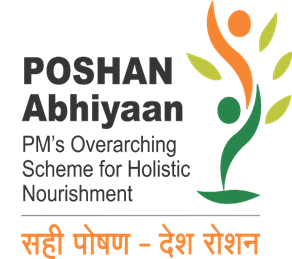
Every child deserves a healthy start, every mother deserves proper nourishment, and every family deserves access to nutritious food. Yet, for millions in India, malnutrition remains a silent crisis—one that affects not just individuals but the very future of the nation. Recognizing the need for transformative action, the government launched Poshan Abhiyaan on March 8, 2018—a flagship program aimed at improving nutritional outcomes for women and children through a holistic approach. One of its key initiatives, Poshan Pakhwada, has emerged as a powerful platform to raise awareness and promote community participation in addressing malnutrition.
7th edition of Poshan Pakhwada
Poshan Pakhwada, an annual nutrition awareness drive, is not just another campaign—it is a clarion call for action. In 2025, the seventh edition of Poshan Pakhwada will be observed from April 8 to April 22. With themes centered on maternal and infant nutrition, digital accessibility for beneficiaries, and combating childhood obesity, the 7th Edition of Poshan Pakhwada focuses on outcome-based interventions to enhance nutritional well-being.
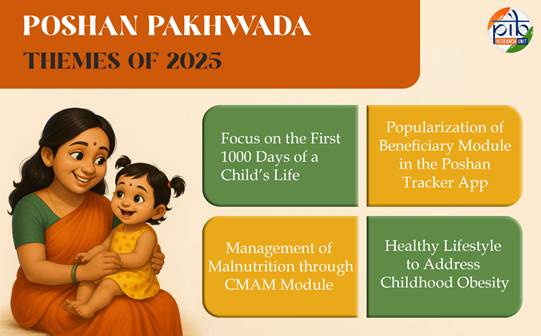
Poshan Pakhwada 2025 Activities
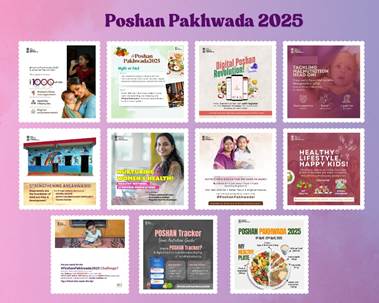
Poshan Pakhwada 2025 is a step towards building a nutritious Bharat with the main focus on women and children. All the ministries and departments of the Government of India along with Anganwadi Centers across the country are organising various activities to sensitize the community to:
- Prioritize antenatal care, proper nutrition, and regular health checkups.
- Pledge for a healthier future - eat healthy, stay active, and spread awareness.
- Eat a balanced and healthy diet.
- Drink 8 glasses of water daily.
- Register on the Poshan Tracker App.
Why the First 1,000 Days Matter?
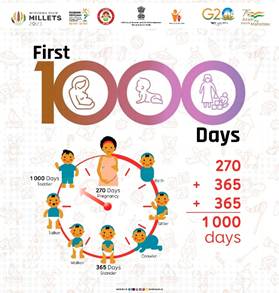
Imagine a mother, newly expecting, eager to give her child the best start in life. The food she eats, the healthcare she receives, and the guidance she gets in these crucial early months shape not just her baby’s physical health but also shape their mental and emotional health. The first 1,000 days—from conception to a child’s second birthday—are the most critical for physical growth and brain development. During this time, a baby’s body and mind grow at an incredible speed, laying the foundation for their future learning, immunity, and overall health. Good nutrition, love, care, and early learning experiences during this time can help them grow into a healthy, smart, and happy individual.
Therefore, Poshan Abhiyan has given a special emphasis on the first 1000 days of life, which is actually the magic window for any child. Through this year’s themes, Poshan Pakhwada 2025 aims to educate families about the importance of maternal nutrition, proper breastfeeding practices, and the role of a balanced diet in preventing childhood stunting and anemia. The emphasis is also on local solutions—promoting traditional nutritious foods, especially in tribal areas where indigenous diets hold the key to better health.
Technology Meets Tradition
What if every child’s growth, every mother’s health, and every meal served at an Anganwadi Center could be tracked in real time? What if technology could ensure that no child is left behind in the fight against malnutrition? This is no longer a ‘what if’, it is the reality with Poshan Tracker.
Launched on March 1, 2021, this AI-enabled platform has replaced bulky registers with real-time tracking via smartphones, empowering Anganwadi Workers (AWWs) to efficiently manage attendance, growth monitoring, meal distribution, and early childhood education—all at their fingertips. The success of the application can be traced from the fact that as on 28 February 2025, all Anganwadi Centres in India are registered on the Poshan Tracker application. For the first time, the eligible beneficiaries—pregnant women, lactating mothers, adolescent girls, and children (0-6 years)—can self-register via the Poshan Tracker Web Application.
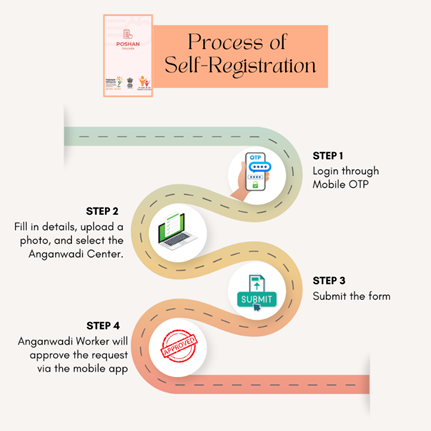
Through Poshan Pakhwada 2025, the government is encouraging greater participation from families as well, ensuring that beneficiaries have access to the app to monitor their own nutritional progress.
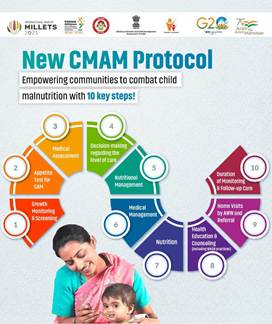
Tackling Malnutrition at the Grassroots with CMAM
Technology has made the lives of Anganwadi Workers easy by providing them with a standardized guide in the form of the Community-Based Management of Acute Malnutrition (CMAM) Protocol. Launched in October 2023 by the Ministry of Women and Child Development (MoWCD), with inputs from the Ministry of Health and Family Welfare, the CMAM protocol is a game-changer. For the first time, Anganwadi workers have a structured approach to detect, refer, and treat malnourished children in their own communities.
During Poshan Pakhwada 2025, this protocol takes center stage. The goal is to turn every Anganwadi into a frontline nutrition clinic—where appetite tests are routine, referrals are timely, and every child gets a chance to grow stronger. Communities will be sensitized, families will be informed, and data will be fed into the Poshan Tracker to guide policy with precision.
Fighting Childhood Obesity Through Healthy Lifestyles
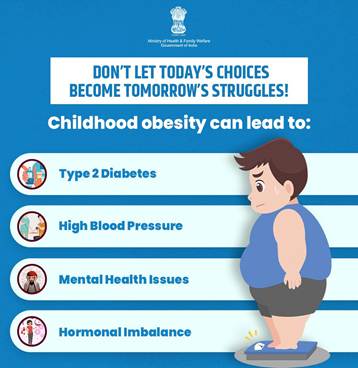
Malnutrition isn’t just about underweight children—it’s also about overweight children. While India continues its fight against undernutrition, there’s a growing challenge—childhood obesity. In today’s world, children are increasingly exposed to high-fat, high-sugar, high-salt, energy-dense, and micronutrient-poor foods.
According to the National Family Health Survey (NFHS)-5 (2019-21), the percentage of children under 5 years who are overweight has increased from 2.1% in 2015-16 (NFHS-4) to 3.4% in 2019-21 at the national level.
To address the consumption of foods high in fat, salt and sugar (HFSS) and promotion of healthy snacks in schools of India, the Ministry of Women and Child Development constituted a working group in 2015. The recommendations of the group were:
- Ban the sale of all HFSS foods in school canteens and restrict their sale by private vendors within 200 meters of schools during school hours.
- School canteens should always offer green category foods like fruits and vegetables.
- Orange category foods such as confectionary and fried items are not recommended in school canteens.
- Use of hydrogenated oils should be totally banned in school canteens.
- Physical activity should be mandatory in schools.
In a circular dated 12th April 2012, the Central Board of Secondary Education (CBSE) also issued and directed affiliated schools to ensure that junk/fast food is replaced completely with healthy snacks. The circular also directed schools to replace carbonated and aerated beverages by juices and dairy products (Lassi, Chach, Flavoured Milk etc.).
Conclusion
Poshan Pakhwada 2025 is more than just an awareness campaign—it’s a movement to transform nutrition, one mother, one child, and one meal at a time. By combining tradition with technology, empowering Anganwadi workers, and involving communities, India is taking bold steps towards a healthier, stronger generation.
But real change begins with you. Whether it’s adopting healthier eating habits, educating those around you, or ensuring every eligible beneficiary is registered on the Poshan Tracker, every action counts. This Poshan Pakhwada, let’s pledge to be a part of the solution—because a nourished India is a stronger India!
References:
Kindly find the pdf file
****
Santosh Kumar/ Ritu Kataria/ Priya Nagar
(Release ID: 2119796)
Visitor Counter : 103780